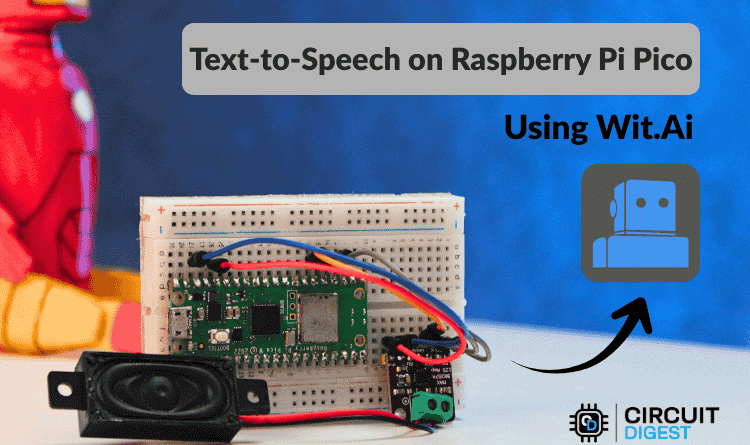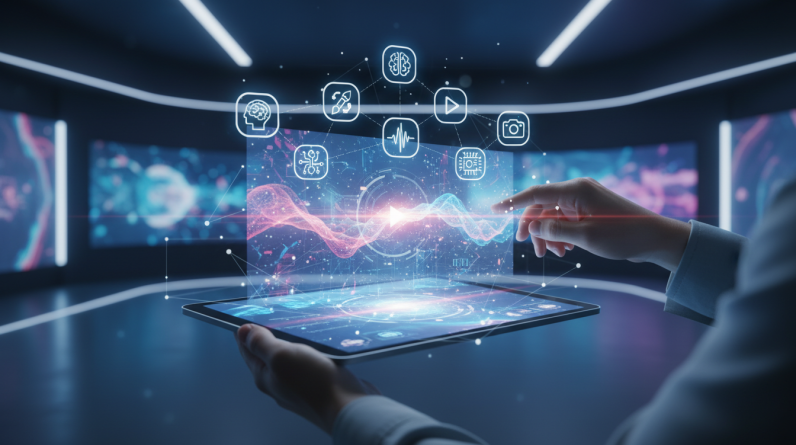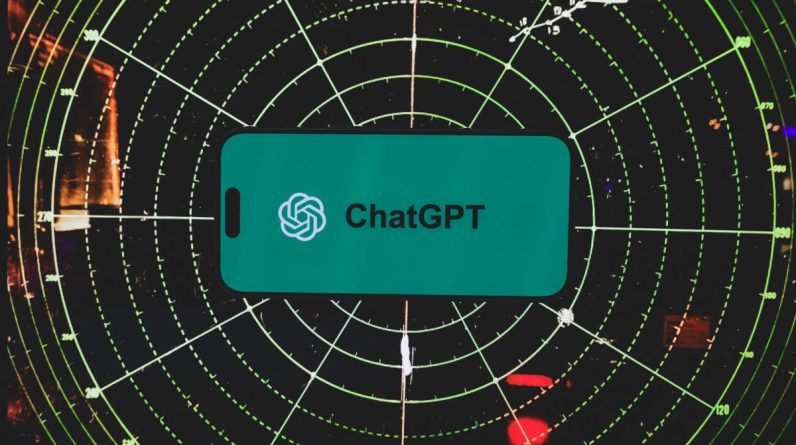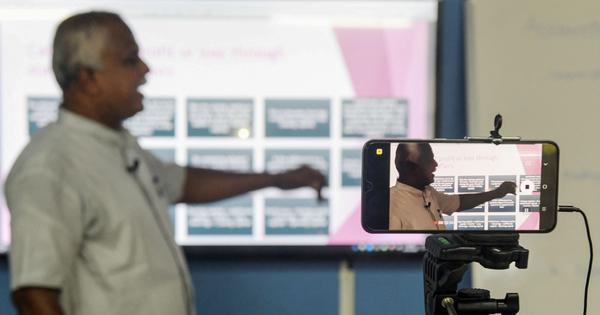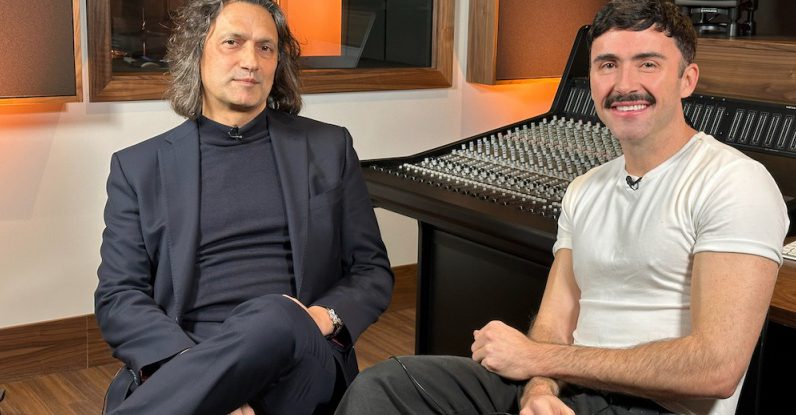
The music industry’s battle against generative AI and fake content continues. Sony Music Group has just made a public announcement prohibiting text and data mining of its content without its consent.
All the major music company CEOs have publicly addressed the threat from artificial intelligence, as well as the creative possibilities for new technology.
The use of AI tools is also becoming an essential part of an up-and-coming artist or producer’s toolkit. One of the major players within the contemporary music education landscape is Tileyard Education, a professional education centre based at London’s Kings Cross.
Fresh off the back of announcing a new strategic partnership with Confetti London to expand opportunities for its combined talent, Jamie Searls, managing director of Tileyard Education, discusses how AI is helping shape the future of music education…
How does Tileyard help its talent secure work in the music industry?
“Our focus has been to bring the industry into the education sphere. What we’ve been able to do is build a really exciting education brand around Tileyard’s professional music community – we have publishing companies, management teams and record labels all based in and around us. And the majors like Sony and Universal are just on our doorstep. I was already working in music supervision within that space and so I brought in a lot of those contacts. I started to liaise with the labels and the independents, the management teams, and the artists themselves, to find out what they were looking for and establish the gaps in their own creative spaces. We started to then fill those at Tileyard Education.
“For our music performance and production students, we put on songwriting camps with live commercial briefs and we’ve even had singers go on tour with artists like Sigala. I guess from an A&R perspective, what I’m most proud of is building a successful department that is actively signing deals for our students and alumni. Over the past 18 months alone, we’ve signed over 250 single-song agreements. To the best of my knowledge, we’re the only education institution that is doing this. It’s a complete game-changer for people wanting to start a career in the industry. Similarly, our music business students are often securing jobs before they graduate and regularly take advantage of the internships and mentorships provided by our community. As we now delve into the AI conversation, we’ll realise that that sense of human interaction is still the most important thing.”
What benefits is AI bringing to songwriting and production and how does this factor into education?
“There’s still an awful lot of scepticism about AI in music and its positive aspects are often overlooked. First off, it’s an amazing content generation tool and this is hugely beneficial if you’re a songwriter for instance, or you’re a producer and you’re creating beats and you’re wanting to come up with ideas and concepts. It can also be of assistance in the recording studio. What it can’t do is teach people how to maximise their abilities in a studio setting or how to ease out of negative traits affecting the quality of music.
“In the past, music education often followed a standardised, classical approach. However, in recent years, there’s been a shift towards more personalised and individualised teaching methods. This change highlights the importance of direct human interaction in music lessons, and a lack of this personal touch could significantly impact the effectiveness of the instruction. AI can still be of aid, however, in the education environment. In typical music classes, teachers offer expertise on rhythmic patterns, cadences, and chord progressions. AI can offer additional assistance and resources to support teachers in these areas.”
There’s still an awful lot of scepticism about AI in music and its positive aspects are often overlooked
Jamie Searls
What are some notable examples of AI tools being employed to streamline and elevate the creative process in music?
“One of the companies based at Tileyard which we are starting to work with, Vochlea, they use an AI-generated software system where you basically use your voice like a Musical Instrument Digital Interface or MIDI. Essentially you can sing or talk into a microphone and it creates the music for you. So, for instance, if you want a percussion line or you want a guitar or piano-sounding instrumental, it will build that for you within this AI generated software. What this now means is if you don’t play an instrument, you can actually create your beat using Vochlea’s technology. That’s huge. And so, despite the scepticism, that’s a great example of how AI can change things and enhance the creative experience.
“From a music business angle, we can also look at Un:hurd, another company we work with. They use a data-driven music marketing and insights tool which can help you reach your most valuable fans in just a few clicks. Essentially, they use AI-supported software to enable you to promote your music in very individualised and specific ways. So, people don’t have to rely on older tools like getting yourself a premiere or even Spotify playlisting. There are different methods and strategies that you can employ as a self-publishing music artist or an aspiring songwriter, or a manager that is managing these processes to enable you as an artist to really boost your appeal and to build an audience. Which is ultimately the end goal, right?”
How can AI make music training more inclusive and accessible to all?
“AI-supported software like the one I just mentioned, Vochlea, leaves the scope wide open to aspiring musicians and artists with limited musical training and helps remove barriers like physical disabilities. It massively democratises the ability to create music, meaning it’s not just for the music proteges. People can literally create music in their own home, and I know some people will push back here and say we’re sort of doing that with Digital Audio Workstations (DAW) already, however, actually it’s different and it’s constantly advancing.”
How is AI being embedded into contemporary music education at places like Tileyard Education and Confetti Institute of Creative Technologies?
“We’re still at the early stages of exploring this. We’re already seeing AI in use with something as simple as ChatGP, we know that this is being used as a tool in songwriting sessions. While we advise against relying too heavily on it, using it can be beneficial. It can aid in idea development and streamline thinking, enhancing rather than detracting from the experience.
“With the landscape evolving rapidly, new tools and developments are emerging practically every day. At Tileyard, we’re actively working with our educational partners like Confetti and links to industry to explore the latest innovations. A great example is Third Space Learning, they use AI to analyse vast amounts of audio and written data from tutorials, enhancing lessons to improve student understanding and performance. For instance, AI can assist with scales, tuning, and provide musical accompaniment, allowing students to learn faster and more effectively.
“Our teachers and tutors are open to these advancements and are actively collaborating with experts in the AI space. Being based at Tileyard London, which is known for being a digitally-focused location, we’re surrounded by companies like Vochlea, Un:hurd, Ableton and Splice, who are pioneering new approaches to music. This dynamic environment influences how we teach our students, ensuring they’re prepared for the evolving landscape of music education.”
Looking at the performance side of things, how can AI-driven technologies create new innovative musical experiences?
“We’re all about guiding individuals to reach their full potential as musicians and industry professionals. And in the same way that AI can be used as a tool to enhance creativity in songwriting and music production, it can also elevate the performance aspect. Innovations in AI like online VR headsets can help create personalised music experiences and live performances. These are already reshaping how people interact with music. Take for example the ABBA Voyage, they’re already doing this with their hologram shows. The emergence of new AI-driven companies is creating excitement about future possibilities. Changes in music consumption and live experiences have been ongoing, with technology driving constant evolution. Embracing these changes and adapting to new opportunities is crucial for staying relevant in the music industry.”
PHOTO: (L-R) Confetti London director Darius Khwaja and Tileyard Education managing director Jamie Searls


